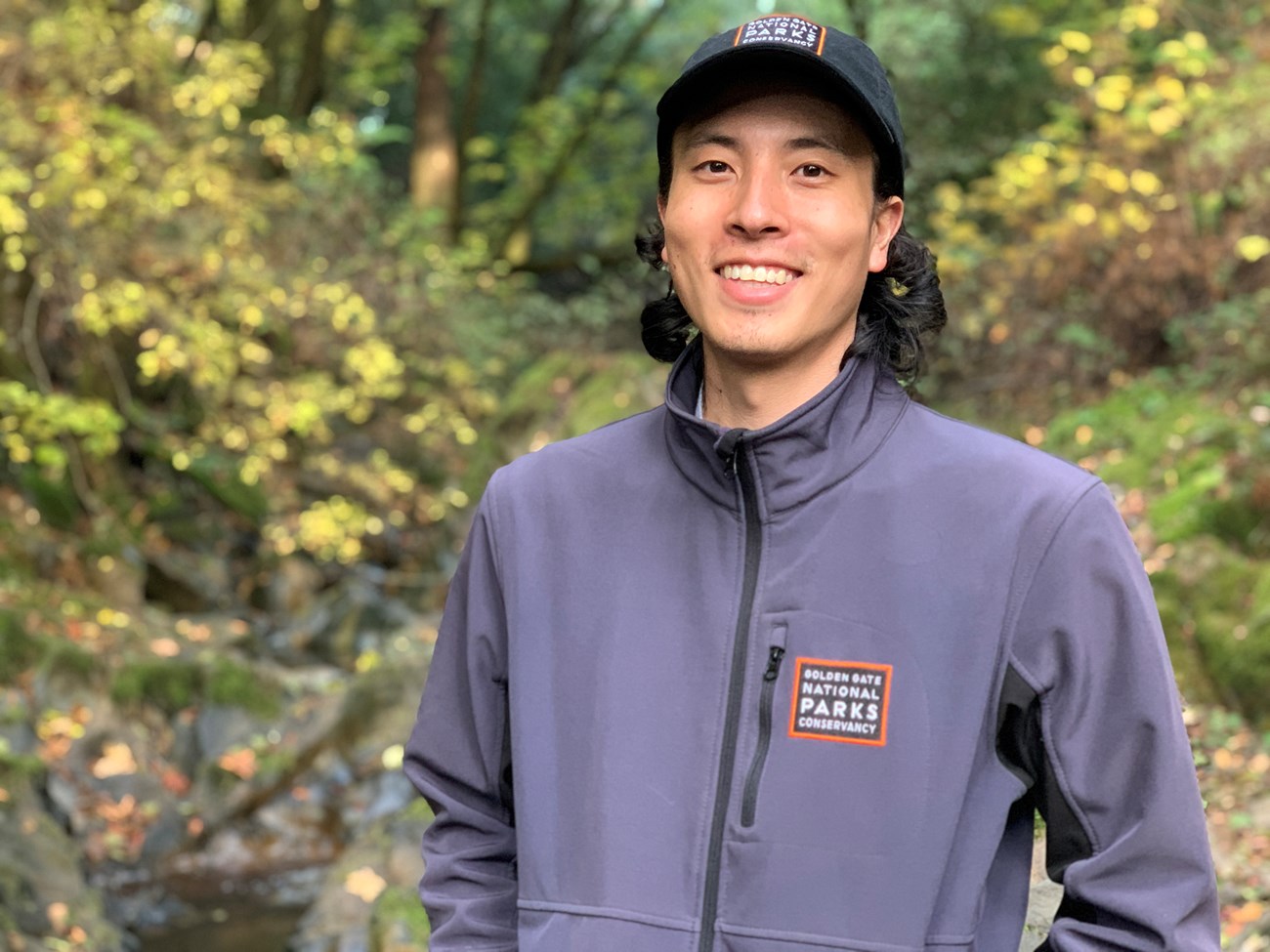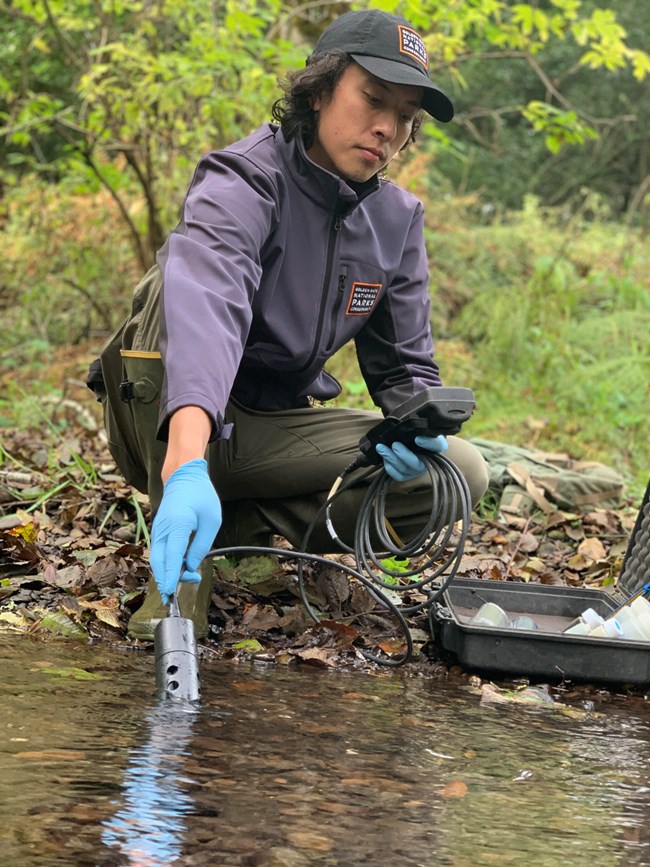Last updated: July 8, 2025
Article
Scientist Profile: Alex Iwaki, Hydrology Monitor

NPS / Alex Iwaki
On finding a career outdoors….
"While I was in college, I didn't want to go back home for the summer to work at the local grocery. I applied for a bunch of environmental internships and got a fisheries internship in Colorado. I had no prior experience or any interest in fish, but I thought “why not?” I went out there, learned a lot, and had an amazing time. After the fisheries internship, I knew I wanted to continue to work in natural sciences. Even though I majored in applied physics, I feel like many of the skills I learned in school I can still apply in a natural science setting.
I enjoy being and working outside in nature because it not only keeps me active, but I can really connect my work to the physical, natural world. It’s also nice to not be behind a screen all day."
On fieldwork....
"I monitor and collect water quality data in freshwater streams at national parks in the San Francisco Bay Area Network (SFAN). In the morning of a field sampling day, I calibrate my water quality instrument for accurate measurements and gather all the appropriate gear needed, including sample bottles. I spend about half the day driving and hiking to beautiful streams, recording water chemistry readings (temperature, pH, dissolved oxygen, conductivity, salinity), and collecting samples for analysis. When I'm sampling, I am in a bit of a time crunch because the samples I take are time-sensitive. But there are times during sampling where I get to stare around at nature and just be where I am, and I realize, wow, this is incredible that I get to do this.
Once back at the lab, I process these samples and analyze them for bacteria, nutrients, and turbidity. I also recheck the instrument again to ensure accuracy. I enter the data into the database, strengthening existing long-term datasets. It is cool that my job allows me to physically go out and see which stream the samples came from, process the samples to get data, enter the data, and make sense of the data. It's very rewarding to see the entire process and connect the data to the watershed. Every month I get to visit the same streams and basically perform a routine health check!"

NPS/ Alex Iwaki
On why water quality matters….
We [SFAN] monitor and collect these data to assess watershed health through streams. Monthly monitoring and data collecting creates long-term datasets, which allows us to know a stream's baseline status. Deviations from this baseline can reveal important trends, as well as periodic and rare events. Collecting these data are extremely important when considering how climate change might be impacting freshwater streams. For example, are streams getting warmer? If so, water with higher temperatures can hold less oxygen, negatively impacting fish such as salmon."
Reflections on his career so far...
"One thing I'm proud of in my career is still having the connections I've made from former jobs. Many of my previous bosses and coworkers have become my mentors and friends. Forming those relationships was extremely important in my early career since the beginning was all seasonal jobs. Once one season ends, I would have to search for the next one, and those connections were very handy. On looking back, I realized how important it was for me to keep an open mind. I didn’t know anything about fish work, but then tried it and loved it. The same is true for water quality. I think keeping an open mind and having a good work ethic can take you far in this field.
I really like working for the national parks because it is part of a bigger system that works for the benefit of the environment and the organisms that live in it. I like the feeling of working towards something bigger than myself that will last a lot longer than me."
Interview adapted for length and clarity by Laurel Teague, December 2020.
Further Reading
- Water Quality Monitoring in the San Francisco Bay Area
- Water Quality Monitoring in the Presidio
- San Francisco Bay Area Inventory & Monitoring Network Water Quality Monitoring
- Learn about Rivers and Streams with the Pacific Coast Science and Learning Center
Tags
- golden gate national recreation area
- john muir national historic site
- muir woods national monument
- pinnacles national park
- point reyes national seashore
- presidio of san francisco
- sfan
- scientist
- profile
- hydrology
- water quality
- monitoring
- people
- nrss careers
- science
- meet the scientist
- inventory and monitoring division
